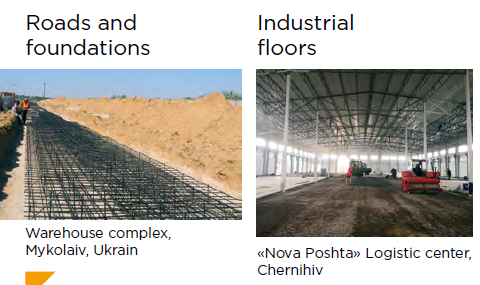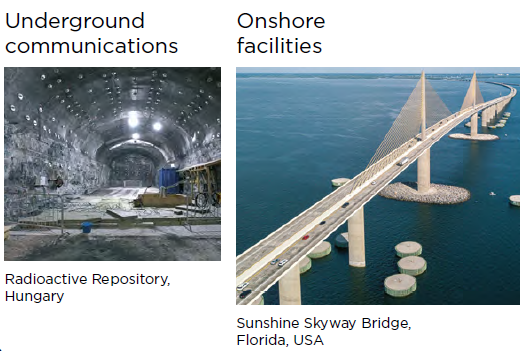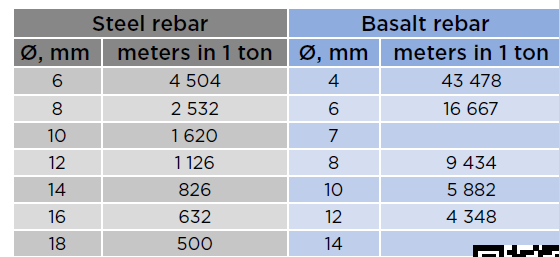Enhanced TDS
Knowde-enriched technical product data sheet
Identification & Functionality
- Reinforcement Form
- Reinforcement Material
- Composite Materials Functions
- Technologies
- Product Families
Features & Benefits
- Materials Features
- Benefits
- Tensile strength is three times stronger than of steel.
- Four times lighter than steel.
- Has high corrosion resistance in all environments.
- Dielectric, non-magnetic, not subject to electrochemical corrosion.
- Has excellent adhesion to concrete and close thermal expansion coefficient.
- Has low thermal conductivity.
- Working temperature range is from -70 to + 160 °C.
- Does not require welding, lifting mechanisms, has low logistics cost.
Applications & Uses
- Markets
- Applications
- Composites End Use
- Application of basalt rebar


Properties
- Physical Form
- Mechanical Properties
Value Units Test Method / Conditions Tensile load 800 - 1100 MPa GOST 12004 Ultimate elongation at break 1,33-1,86 % DSTU ANPB - Typical Properties
Value Units Test Method / Conditions Elastic modulus 70-75 GPa GOST 12004 Density 1,9 g/cm3 GOST 15139 Thermal conductivity 0,36 °С B.V.2.7-312-2016 - Thermal Properties
Value Units Test Method / Conditions Thermal expansion coefficient 0,5-0,9·10-5 - - - Film Properties
Value Units Test Method / Conditions Corrosion resistance very high - -
Regulatory & Compliance
- Permissive documentation
• TU U V.2.7-25.2-34323267-001: 2009.
• Certificate of conformity UkrSEPRO.
• Radiation certificate.
• Conclusion of the State SES of the Ministry of Health of Ukraine.
• DSTU ANPB B.V.2.7-312-2016 “Basalt rebar”.
• DSTU-N B V.2.6-185: 2012 “Guidelines for the design and manufacture of concrete structures with non-metallic composite reinforcement based on basalt and glass roving”.
• DSTU B V.2.6-145: 2010 “Protection of concrete and reinforced concrete structures from corrosion”.
Technical Details & Test Data
- Table of steel rebar replacement with basalt
